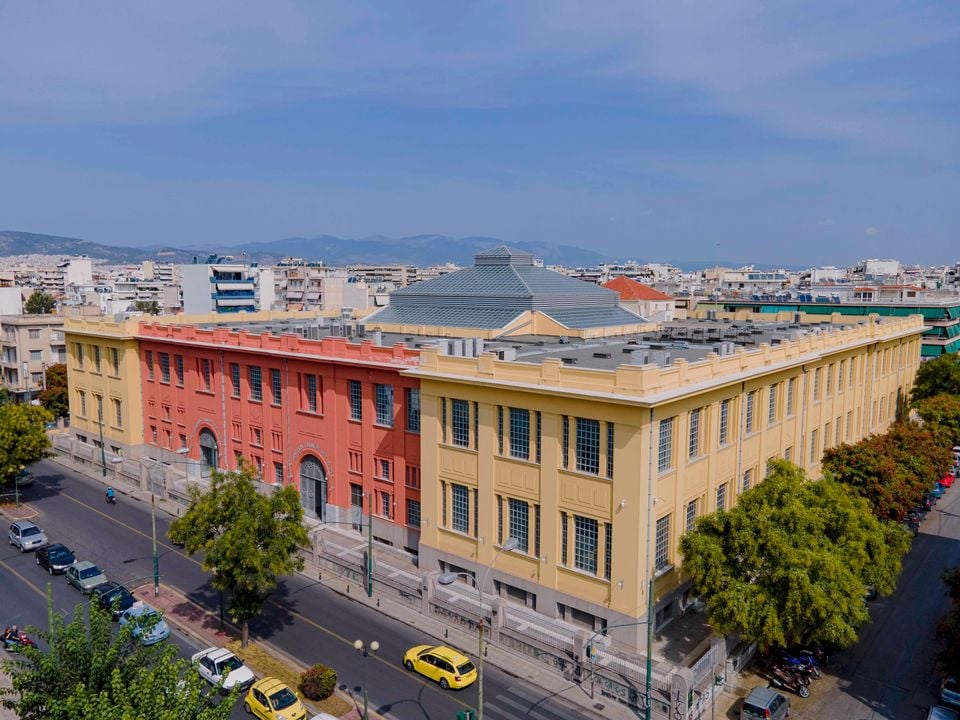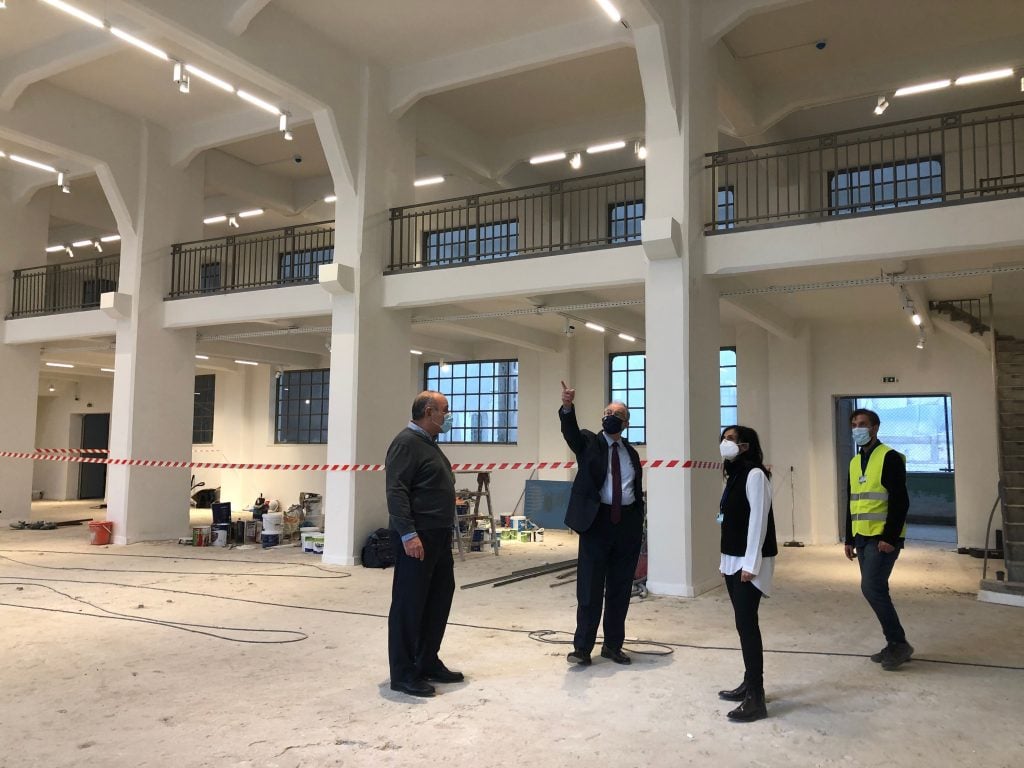Art & Exhibitions
A Greek Billionaire Is Converting an Old Tobacco Factory in Athens Into a Culture Venue—and Gifting It Back to the Government
The debut show will feature work by Michael Rakowitz, Glenn Ligon, and Danh Vo.

The debut show will feature work by Michael Rakowitz, Glenn Ligon, and Danh Vo.

Sarah Cascone

An old tobacco factory in Athens is about to become a cultural center.
Set to open next year with an exhibition featuring international artists including Michael Rakowitz, Glenn Ligon, and Danh Vo, the launch will coincide with the 200th anniversary of Greece’s revolution against Ottoman Empire, which led to the foundation of the modern Greek state.
Built between 1927 and 1930, and designed by civic architects Pavlos Athanasakis and Antonis Ligdopoulos, the Lenorman Street Tobacco Factory was declared a historic monument by the Greek Ministry of Culture in 1989. Renovations on the property began in 2000, but efforts were slowed by the Greek financial crisis of 2009.
Half of the building, which comprises a city block, is currently home to the library of the Hellenic Parliament. Converting the rest of the premises into a cultural venue will cost €1 million ($1.2 million) in renovations, which are being funded by Neon, a Greek art foundation established in 2013 by collector Dimitris Daskalopoulos.
The inaugural exhibition, “Portals,” will be curated by Madeleine Grynsztejn, director of the Museum of Contemporary Art Chicago, and Neon director Elina Kountouri, reports the Art Newspaper. It will be on view from June to December 2021.

Dimitris Daskalopoulos, the founder Neon; Constantine A. Tassoulas, president of the Hellenic Parliament; Elina Kountouri, director of NEON; and Fanis Kafantaris, from Neon’s exhibition design department, inside the Lenorman Street Tobacco Factory, Athens. Photo ©Efi Syrigou, courtesy of the Hellenic Parliament and Neon.
The venue “is remarkable for its deep economic, political, intellectual, and historic roots,” Grynsztejn said in a statement. “Contemporary art thrives in a context so profoundly resonant; it marries the past to the present while reconciling our prevailing paradoxes and pointing to the future.”
The exhibition hopes to replicate the success of a show staged by the Greek state at La Boétie art gallery in Paris in 1919, during the peace conference held following the conclusion of World War I.
“Greek Prime Minister Eleftherios Venizelos inaugurated an exhibition of 200 paintings and sculptures by the ‘Omáda Téchni’ (Art Group), an association of young Greek artists of the time who were linked to the avant-garde and Modernism,” said Constantine A. Tassoulas, president of the Hellenic Parliament, in a statement. Like that historic show, “Portals” aims “to highlight how Greece, its history and its prospects inspire the contemporary, domestic, and international avant-garde.”
At the exhibition’s conclusion, Neon will return the venue back to the state for use as a permanent cultural center. The organization previously completed a similar transformation on behalf of the government at the Athens Conservatory in 2016. It staged a public show of Antony Gormley’s work amid ancient Greek ruins on the island of Delos last year.